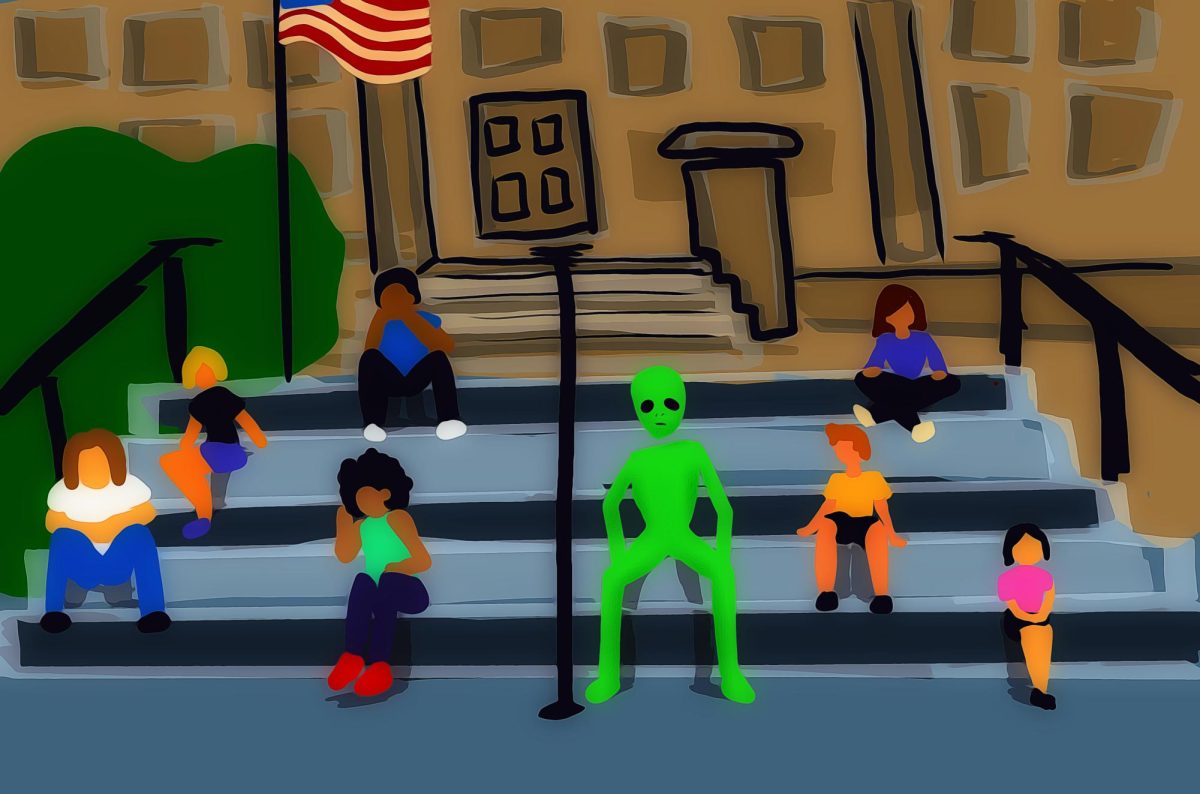In January 2021, President Joe Biden looked to eliminate the term “alien” from all U.S. immigration laws, substituting it with the word “noncitizen” instead. He put Executive Order 14010 into effect, pushing the federal government to avoid the term “alien” when describing migrants.
For Texans, the term “alien” holds meaning as a word that could simply refer to something foreign but could also portray the dehumanization of minorities. Therefore, we must be mindful of how and when we use the term.
As an institution that prides itself on diversity and its international student population, UT should remove any mention of the word alien on its tax websites. Referring to students and international staff as aliens unnecessarily isolates them. Everyone should be treated with respect and dignity during their time at UT.
“Alien” is a blanket term that continues to raise objections because of its racialized history.
“The reason many of us question the word ‘alien’ is because not only does it dehumanize, but it insists upon a way in which, historically and currently minoritized people are seen as disposable and not eligible for those same kinds of rights as citizens has,” said Lilia Raquel Rosas, assistant professor of instruction in the Mexican American & Latina/o Studies department. “But we know from the Constitution you don’t have to be a citizen to be entitled to the same set of rights. (It) really seems to accentuate otherness, differences, as well as, in my opinion, dehumanization.”
UT is home to 1,907 international undergraduate students, 4,116 international graduate students and 1,028 international faculty and researchers. The use of the term “alien” on UT websites negatively affects this part of the campus community, unnecessarily separating them from the UT students and staff who are U.S. residents.
The University declined to comment on this matter.
Psychology junior Isabella Kaun is an international student from Monterrey, Mexico who first encountered the term “alien” when applying for an on-campus job.
“I just feel like it’s unnecessary and I wish it was stopped,” Kaun said. “I just don’t see a reason why they should continue using this term … I know eventually I want to go back home, I’m not very attached to the U.S. But there’s a lot of people who are legally classified as nonresident aliens, who consider the U.S. their home and they are a lot more hurt by the term.”
Everyone deserves to feel like they belong on this campus. As a school that prides itself on its diversity and global connection, the University should take action and change its website terminology. By replacing “nonresident alien” with “nonresident,” UT can make a small change that will have a big impact, making international students and staff feel more welcome.
“The University of Texas has an ability to set the stage and redefine conversations,” Rosas said. “We globally have a presence and if we are asking for folks, not just from Austin, from Texas, or the U.S. but from internationally to come and be part of this university, then we have a responsibility to redefine the terms. UT has an opportunity to lead that charge … Why shouldn’t Texas and UT as an institution lead that conversation?”
Muthukrishnan is a government and race, indigeneity and migration sophomore from Los Gatos, California.














